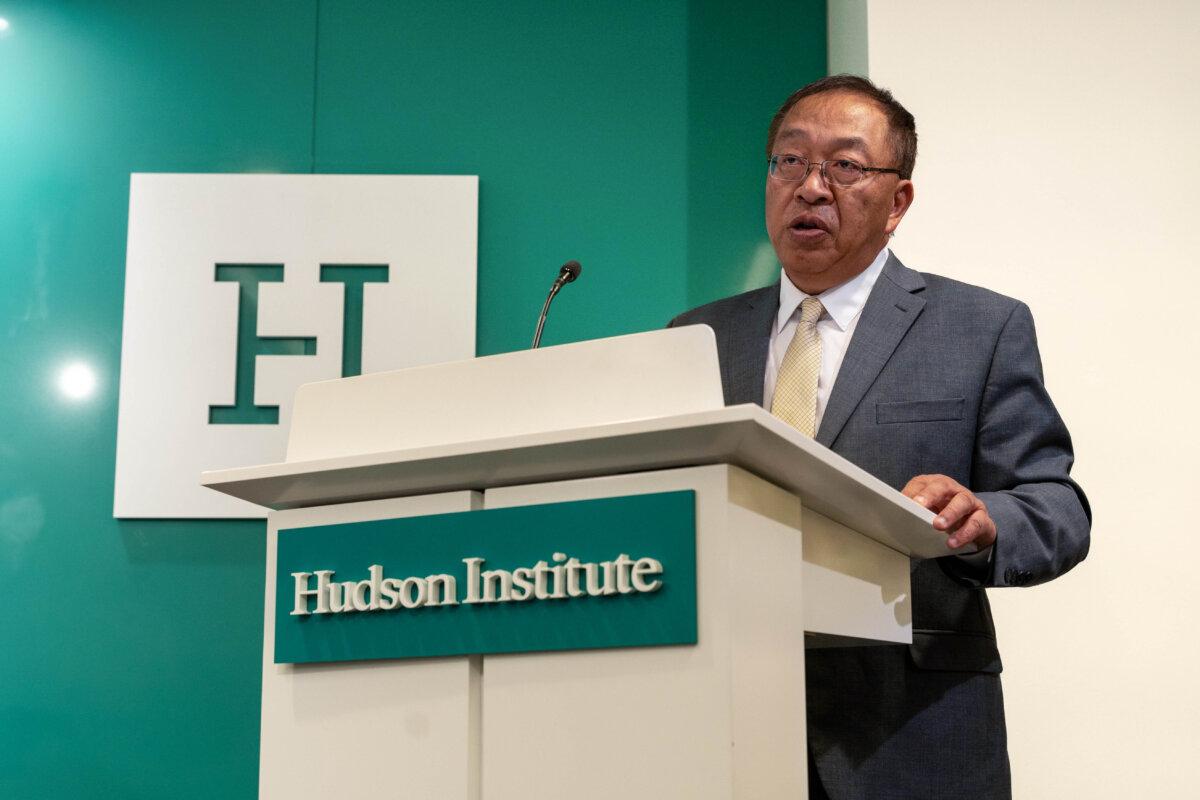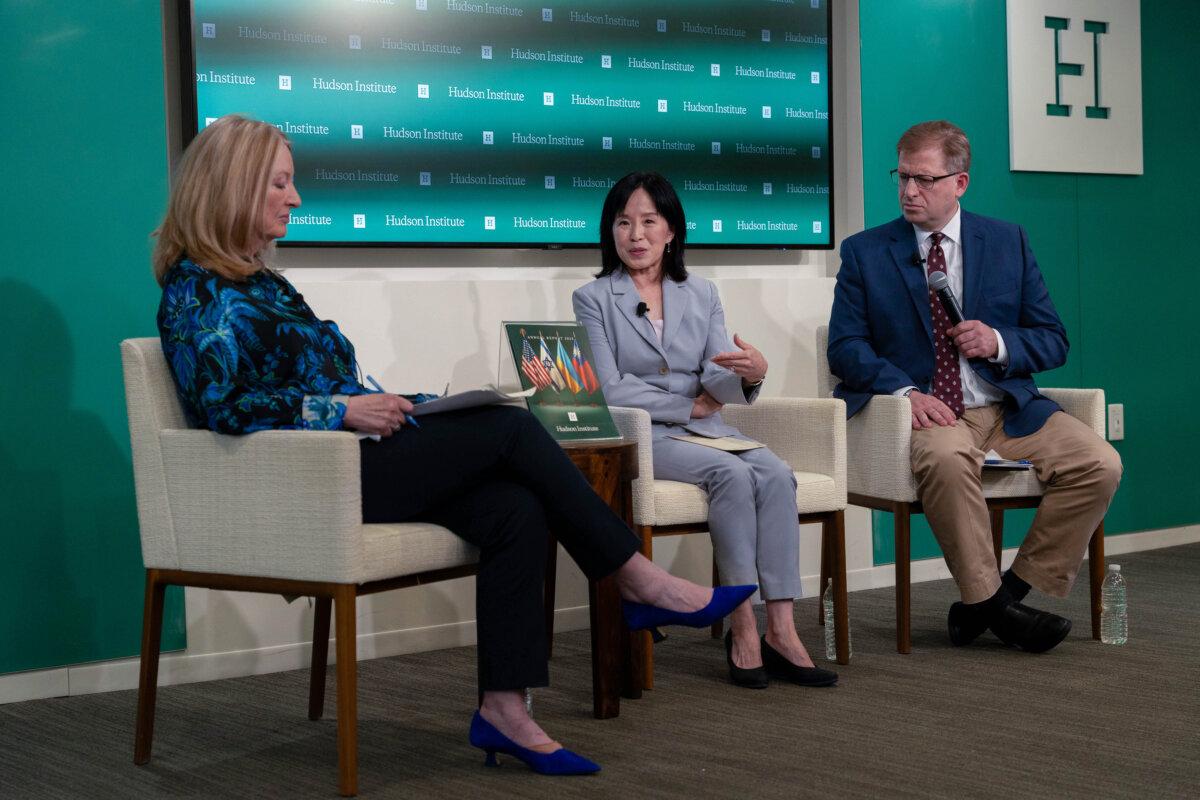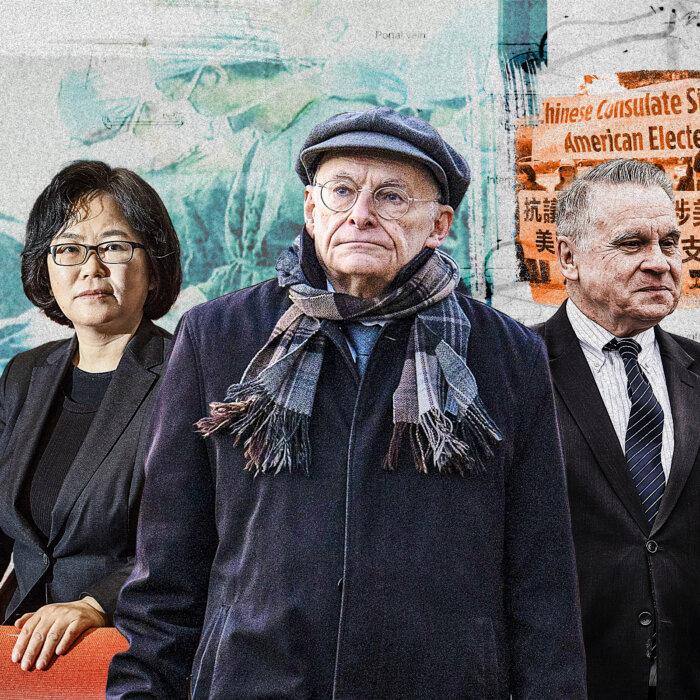WASHINGTON—The Chinese communist regime is manipulating Western minds and narratives in suppressing Falun Gong beyond China’s borders, researchers said at an event marking the 25th year of Beijing’s eradication campaign against the faith group.
Panelists speaking at the Hudson Institute on July 17 cited those examples to demonstrate how the Chinese Communist Party (CCP) has been conducting an effective global influence campaign.
“It’s a propaganda war,” Nina Shea, director of the Center for Religious Freedom at the Hudson Institute, told The Epoch Times, adding that Americans who fall prey to such campaigns risk taking actions against the United States’ own interests.
At a press briefing on July 18, the State Department said it has made combating these operations globally a priority.
“We are very vigilant about the threat that certain countries pose when it comes to spreading misinformation and disinformation, not just within their own countries, but in other countries domestically here within the United States,” the State Department’s principal deputy spokesperson Vedant Patel told The Epoch Times.
US as a ‘Core Battlefield’
On the topic of Falun Gong, the regime’s strategy has largely worked, at times extremely effectively, according to Ms. Shea and others on the Hudson Institute panel.In 1999, the communist regime began to systematically persecute practitioners of Falun Gong, which involves meditation and seeking to live by the tenets of truthfulness, compassion, and tolerance. At the time the persecution began, there were an estimated 70 million to 100 million Falun Gong practitioners in China.
The CCP’s strategy in influence operations is to pick a hot-button issue that people in the West care about, create negative news around it, then try to push it into mainstream channels.
Levi Browde, executive director at the Falun Dafa Information Center, gave the example of Chinese consulate posts from 2009 claiming that Falun Gong bars interracial marriage.

It was “total nonsense,” he said at the event, noting that he himself, a Falun Gong practitioner and a white man, is married to a Chinese woman.
The CCP doesn’t use that particular propaganda tactic in China “because racism is not a hot-button issue there, but racism obviously is a hot-button issue in America,” he said. “They put that out there and see who picks it up.”
For years, such tactics have been embedded in Beijing’s directives.
The same document called for “cultivating nongovernmental sources” to “fight” Falun Gong and “mobilizing patriotic and friendly individuals, such as experts, scholars, reporters, and overseas Chinese community leaders with major influence in America and other countries” to speak on Beijing’s behalf and spur more reports from foreign media that further the regime’s goals.
Mr. Meng called the United States a “core battlefield” in this contest.
“We must seize the opportunity of Western countries’ rising demand for us, and push the concerned countries to ban or restrict the activities of the ‘Falun Gong’ ... organization, and strive to crush its long-term operational bases, sponsors, and partners,” an excerpt of the speech, labeled “confidential,” reads.

The CCP carries this out through “widespread propaganda and misinformation aimed at dehumanizing practitioners” and framing them as dangerous enemies of the state, according to Miles Yu, a China policy adviser during the Trump administration, who gave the keynote address at the June 17 event.
“This systemic vilification not only incites hatred and discrimination, but also serves to obscure the true nature of the [CCP’s] actions from the international community,” he said.
The CCP’s actions, according to Mr. Yu, “are in direct violation of international human rights standards.”
Mr. Browde has felt firsthand the power of the CCP’s hate campaign in the United States.
Once, he said, he entered a shop in Manhattan’s Chinatown after finishing practicing Falun Gong meditation in a nearby park. The shop owner was excited to see a Western customer, until she looked at his T-shirt, which read “Falun Gong” in Chinese and English.
Media Manipulation
Since most Americans don’t have personal experience with all of the various issues we hear about, we must rely on the media and other information channels to learn about them. This is why the CCP targets Western media to spread its messages, panelists said.Mr. Browde noted several instances in which an outlet bought into Beijing’s narratives and quoted them verbatim without giving context.
“That’s very troubling when you take the CCP as a credible source for [information about] a group that they’re horrifically persecuting,” he said.
“The CCP knows that. And that’s how they can get an influence, that they can actually change the way people think and feel.”
“The conclusion shows that very many people have died indescribably hideous deaths for no reason,” tribunal chairman Sir Geoffrey Nice QC said in delivering the judgment in June 2019.
What Ms. Tatlow’s testimony reveals has implications for multiple articles, Mr. Browde said.
The fact that a major media outlet would listen to the Chinese regime on this topic and make the editorial decision that it was no longer newsworthy is “deeply damaging,” he told The Epoch Times.
It also reveals “one of the most insidious parts” of the regime’s repression: to “convince Americans that the truth is not the truth on these fronts,” he said.

“They don’t know that they’re helping a Chinese regime murder people for their organs. Why? Because either they were told a lie about it, or they never heard about it,” Mr. Browde said. “That’s how it hurts people, because they now have to think of the world—in this case, the organ heart organ transplantation industry—in the way the Chinese regime wants them to think about it.”
In the case of artistic expression, China’s diplomats have aggressively gone after New York-based Shen Yun Performing Arts, which tours globally each year to showcase the best of Chinese culture through the ages, before communism. Some segments from modern-day China depict the persecution of Falun Gong.
The CCP often says that in China, Falun Gong is labeled a “cult,” a term it knows will provoke a reaction in the West.
“They’re trying to get into the heads of Americans and say, ‘You don’t want to see the show that’s put on by a cult,’” Mr. Browde said.
It’s a tool that the regime can weaponize against any person, institution, or country, he added.
This is why Americans should be vigilant against these types of threats as much as kinetic warfare, Mr. Browde said. The CCP seeks to control the United States without firing a shot.
“That’s really their end game,” Mr. Browde said.







